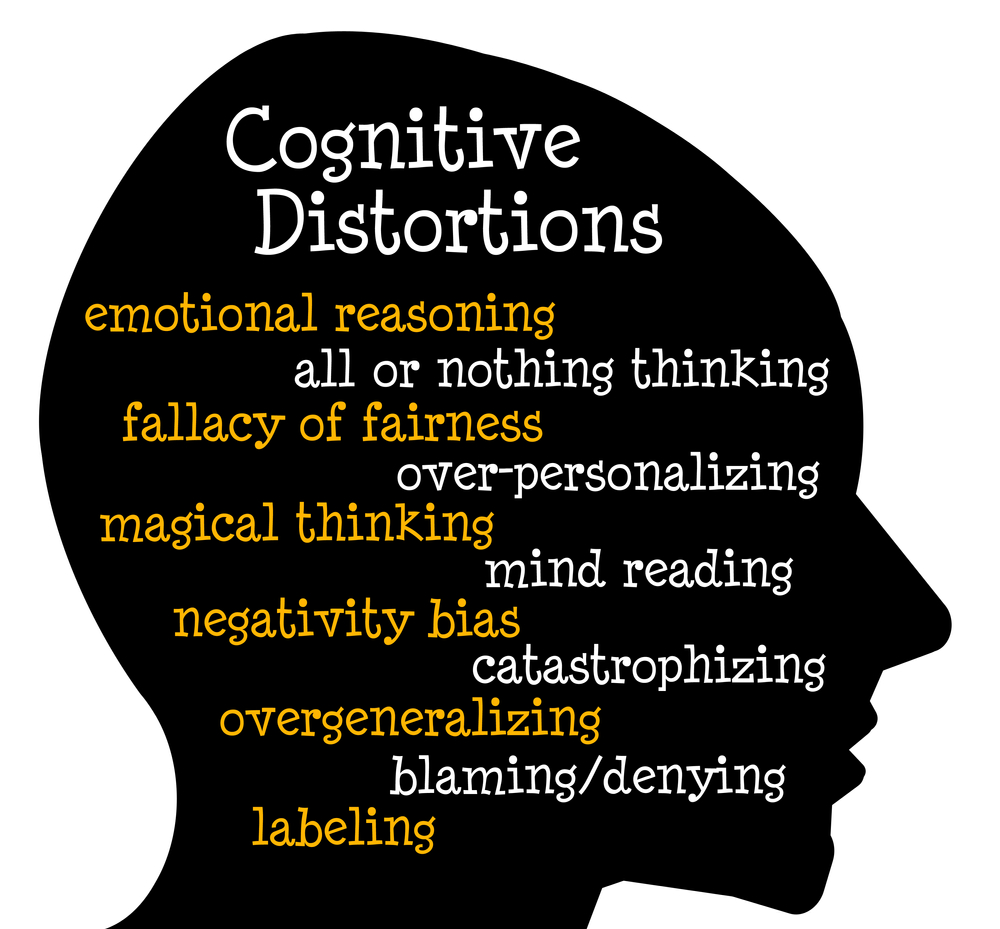Speaker 1 (00:03):
Welcome to the renewal session, where mother and daughter, therapist talk about reclaiming your purpose, redefining your relationships and renewing your mind by combining therapy and faith. These two women of different ages, different perspectives and different opinions tackle the how to, of transformation and share the behind the scenes on others who have done the same. Hi,
Speaker 2 (00:25):
Welcome to the renewal session. I’m Katie and I’m here with my mother Marianne, and we’re really excited to have you here today with us. Um, we are going to be talking about a lot of fun stuff. So get comfy, pour a drink, get a snack, a warm blanket candle. Oh my gosh. Like they’re having a romantic evening with us. I don’t know. Just like get comfy set the mood, you know, you know what, half the people I talked to listen to us in their car or out on their walk run. Okay. So, um, make sure you have a fresh air freshener folders. All right. All right. All right. Let’s get down to business. Let’s get down to welcome. Welcome. So tonight is the first night of the renewal session book club. This is our second book on Monday nights from seven to eight 30. Anybody can join.
Speaker 2 (01:25):
They just have to reach out to us through our website, which is hi@therenewalsession.com to get set, to get sent the zoom, or they can DM us on Instagram at the renewal session. So just a little plug. If you want to be a part of the book club, you can join at any time. But the book we’re doing this time is called winning the war in your mind, change your thinking, change your life by pastor Craig, Rochelle from the life church. So Katie, are you excited? This is like my thing, like, I’m all about taking your thoughts, captive thinking on whatever’s true. Noble blah, blah, blah. So I’m super stoked, but just because it’s my thing, doesn’t equal. It’s your thing. Are you excited? I’m actually very excited. I’ve ordered my book. My laptop is charging and it’s always a good time. I don’t know. I feel like there’s so many different perspectives and personalities that I feel like every time we do book club, we talk about the book, but then we also talk about like all different, other kinds of things that I wouldn’t have necessarily thought about.
Speaker 2 (02:34):
And so it’s always a good time. I feel like I go and I come out feeling like I’ve really thought about things and we laugh too. We just laugh a lot. Yeah. It’s always a good time. Yeah. So this, I think this is going to be a good group of gals and I’m super excited. So at the beginning of his book, he says this quote, he says our lives are always moving in the direction of our strongest thoughts, what shapes who we are. And my friends said to me, years and years and years ago, she said, we’re all going to believe something. So why not make it something good? And I was like, okay. So if I’m going to believe a lie, why is it? I always believed the crappy ones, right? Like, let’s just make up a whole like new story. Like, oh my I’m so cute.
Speaker 2 (03:34):
Oh my gosh, I’m so smart. You know, I’m not good enough. I’m not, I’m not attractive enough. You know, all of these kind of negative thought patterns that we can develop. And it’s interesting because I do think that, you know, a bad thought life and a good life don’t mix and that our thoughts really can bear through fruit. So if we think good thoughts and then it only makes sense that the fruit and our lives are going to be good. Also, do you feel like you have a pretty good thought life or do you feel like there are patterns of thinking that you wish you could get rid of?
Speaker 2 (04:21):
Um, I feel like for me, I think everybody probably has their negative self-talk kind of thing. Um, so maybe that, I feel like it would be the saying that I wish if I could change anything, it would be like limiting thoughts that I have like, oh, you can’t accomplish that. Oh, that’s too hard. Oh, you’re not that personality type or whatever. Does that make sense? Yeah. So you’re just kind of aren’t necessarily like shame, shame, bashing, bullying, thoughts, they’re more limiting beliefs. Right? Right. So like things that make me believe that whatever it is they want to accomplish is outside the realm of my capabilities. Interesting. Interesting. So, I mean, I could go into that from a therapeutic point of view because of course I want to know when you grow up around a mother, who’s so perfect. Who’s always telling you how wonderful and capable you are.
Speaker 2 (05:25):
And fact, we, we joke that your name is, is capable. How I’m up with this idea in your mind. And I know I’m not a great mom. I like the best mom, and I know I’ve screwed you up in a million ways, but it is surprising to me that one of your limiting beliefs has to do with your capability when one of our family comments that gets made on the regular is about your capability and how like everything is in your grasp. Right? Yeah. Totally. That’s just interesting. I don’t know. It’s one of those things where you start to kind of think about like, what is it that what is stopping me from doing certain things and it’s always myself. So that’s interesting. So one of the things that when you start to talk about renewing the mind, they write all these books because they’re everywhere right now, you know, they’re talking about this subject, but I think like when Newell is deeply personable as personal and there’s no real one right path, I mean, I think we can come up with, you know, processes or suggestions of ways to go about renewing your mind.
Speaker 2 (06:44):
But in reality, our path towards healing and renewal is born out of our story. And, and there are, there are things that need to be healed and truths that need to replace lies and, and really developing our personal relationship with God is another part of that, because we want to be able to take our, our thoughts captive. We want to be able to think in the way that that God would have us think about ourselves and our identity and our calling and the reality is that how he gets us there is very intimate, right? So he has books. They talk about these different processes. And in fact, in his book, winning the war, he gives it a bunch of different things. But one, he says, it’s, it’s really, it’s pretty basic. It’s like to a two-step process, which is identify and remove the lie and replace it with truth.
Speaker 2 (07:51):
Right. So when, when you think about that and you’re like, okay, it is, does it feel that simple to you to take something that you believe my microphone literally just fell? Like it’s a ghost, the holy ghost fell off the deck. I saw that that’s crazy. And it just like totally over it. I’m not stopping recording just because the myself what I have now. Okay. So, I mean, do you think it’s that simple and I’m not, I’m not dissing his work. I’m just wanting to, like, I don’t know that. I think it’s that simple. I mean, if it was that simple wouldn’t I have already done it already. Wouldn’t it have already been something that I’ve mastered instead of something that I’m constantly wrestling with, because I feel like renewing your mind is not a one time decision, nor is it a two, just a two step process.
Speaker 2 (08:57):
Feel like it’s equally decision. It’s a listening to God. It’s really honing in to the people around you being aware of what’s coming in and what’s coming out of your mouth. Well, and I also think it requires a certain level of willingness to sit with the pain of thinking differently. I think that first, a lot of people, you know, there might be, um, like for instance, if I have the self talk of, oh, no, I’m not able to live that lifestyle because of X, Y, and Z. Right. And I decide, you know what, I’m going to renew my mind. I’m not going to think like that anymore. I’m going to think I can live that lifestyle. I think that for a lot of people, there’s probably shame with all of the years that we spent living out of that negative self-talk and feeling like the remorse and the regret of having lived a life out of that.
Speaker 2 (10:02):
And so I think part of renewing your mind is also like the willingness to sit and really like, feel the feelings that come as a reaction to adopting new self-talk or new mindsets and things like that. I think that there’s a lot of emotions that people experience and then that can be kind of overwhelming. Yeah. I think you’re right. Like, you know, and we talked about this briefly just a second ago, about the idea of limiting beliefs versus negative self-talk and how those limiting beliefs can bring about a real sense of disappointment. And in some cases, like you said, shame over missed opportunities or not feeling like, um, you’re responding to God’s call on your life. I think specially in like Christian communities, we can really put a lot of, um, pressure on ourselves to live up to some standard, to be really attuned to God.
Speaker 2 (11:01):
And then that negative thought patterns become something that we actually have in secret. We don’t even bring it forward. And it’s interesting at church yesterday, um, the pastor said we need to start praying counter culturally. And I was like, oh, this guy is about to like lay out something that’s. So my jam, like so excited about it. And he did exactly what I hoped he would do, which is he was saying, and it’s what, what Craig Rochelle is saying in this book. It’s what we’re talking about right now, which is that our prayer life, our study, all of these things that make up our Christian walk should be done in, in response to what’s going on in our lives. What are things, what is our story? Well, how are we going to begin to talk that out? And, you know, I think one of the things that really, you know, hit me about kind of what you’re saying is I call it like the inventory, right.
Speaker 2 (12:05):
I have to kind of identify the problem. I have to ask myself some questions and I have to kind of get to that deeper, potentially that deeper issue that’s holding me back. And then I have to bring that to my prayer life. I mean, I think, you know, if, if all I’m doing is doing all of that, then I’m just really relying on myself if I’m not bringing it to God. Right. And that is the true definition of self-help is like sourcing myself the help that I need to, to be the person that I want to be. But I would rather have God help than self-help because Lord knows, I don’t always know the answer. Do you feel like you bring your stuff in prayer? Like you wish you did?
Speaker 2 (12:55):
Um, no, probably not. No, no, I don’t think so. I have a hard time. We’ve talked about that on the podcast though, like the sit down prayer kind of thing. I, I have a hard time with that, but I probably could be more intentional about surrendering things that are out of my control and accepting the things that are, and like appreciating and being grateful for those things. But no, I don’t, I don’t fray as intentionally about those things as I should probably. Yeah. Yeah. Well, and I think, you know, part of our discussion is about expanding our thoughts around ways of connecting with God and talked about the overlapping journaling that you do as a form of processing. And I think that’s super helpful. I, I love that because it’s getting out all of these emotions while at the same time, providing like out creative way to do the processing around those emotions.
Speaker 2 (14:02):
Yeah. Yeah. And so here’s, here’s some things that I kind of was thinking about when we were planning to talk about this today. And so, um, there’s a book that I have that’s based on internal family systems therapy and the book is really about transforming self criticism into self confidence. Right. I would actually want to shift that from a Christian perspective and say that we actually want to have God guided compassion for ourselves and that does get confidence, but, but I don’t really want self-confidence self-compassion I want God confidence, God compassion. Right. Because for me changed anything in my life. So when I start to think about ways that I need to grow, I typically will think about, okay, how do I begin to address this in a way that respects and honors my story and, and realizing like, God’s, God’s not interested in shaming me into change.
Speaker 2 (15:12):
He’s interested in giving me compassion and then guidance towards who he identifies me as, which is his child. Right. And then providing me this biblical roadmap to true transformation. And so that’s how I experienced growth, but I feel like there’s a hiccup in that because a lot of people are like, okay, that’s really great. But like, what are the steps like? Right. And I’m like, okay. So I realized that people like steps, but I think the first question before we give the steps, because I’m going to give them is, do you really want to do this? Because it all sounds so pretty, right. It just sounds like, oh my gosh, we’re going to renew our minds. We’re going to identify the lies we tell ourselves, and we’re going to replace them with a truth and that’s going to make everything better. Right. Reactivity is, are you willing to be intentional about renewing the mind and replacing the lie with God’s truth and living a mindful life?
Speaker 2 (16:23):
Yeah. Well, and when you said that whole like, oh, what’s the next step thing? I think that’s also part of the process is like trusting that God is going to give you the steps. When you said that. I thought of like, like Asian, Japanese ponds that have like the little like stones and you walk on the stones, like across the pond and you like step on the pillow you don’t talking about. Yeah. I mean, I know what you’re talking about. I’m just trying to figure out where you’re going. Right. So I think like in my mind, that’s what the image that popped up of like, you have to walk across the stones and there’s danger of like trusting that there’s going to be another stone and you’re not going to just like fall on your face into the water. Like, I think that, I think that like when you make the first step, God will honor that and, and make it very clear what the next part is.
Speaker 2 (17:11):
Right. Of like, okay, you have made the intentional choice to think differently about yourself. And as a result of that, this happened. And because of that, this happened. And then it starts to like have a chain reaction in your wife that I think is orchestrated by God, because you were honoring the message that he gave to you, which is changed the way you think about yourself. Well, when you were, I got locked in on your whole, like, you know, rock walking thing. Okay. So here’s what we’re going to do. Just so that people are listening to this, know what I’m talking about, because I didn’t do a great job explaining it. We’re going to post a picture of this kind of pond on the Instagram. And everybody go, everybody go in like the post on the Instagram. So you know what I’m talking about? Cause I’m not crazy.
Speaker 2 (18:00):
These kinds of ponds exist. Nobody’s doubting you that they exist. It’s not like they’re gonna make something up. Who’s making up a pond. I don’t know. I made up the monogram door knobs. Everybody went wild. That’s true. I got like six pictures of monogram door knobs and everybody doesn’t have ’em. I think it’s a great, I think it’s a great image though, for like the trusting processes. It literally is you have to take the first step and then, and then God tells you what the next step is, but you just have to be willing to be open to what that is. And just to stick with that imagery for just a second. I mean, the reality is those rocks can be slippery. So you do have to be mindful and take those steps. Right. I’m not looking to fall in the pond. Right. Right. You have to really pay attention to how I step, not just my step.
Speaker 2 (18:57):
Right. And yeah. And being intentional about who you are letting know that you are walking across this path because somebody is going to come. If you tell the wrong person they’re pushing you in, you know, they’re just messenger, they’re messing with you. They’re just, you know, so if you are intentionally making life change, don’t tell everybody you’re walking across a T a treacherous Asian ponds, unless they’re going to be referred to you. Correct. You know, and that’s funny because you know, a lot of what we talk about in, in these books that are being written right now and YouTube videos and sermons and all of these things is the neural pathways. But something that you and I talked about is I think equally important to renewing your mind is understanding mirror neurons. Right. So do you feel like you can explain mirror neurons?
Speaker 2 (19:55):
Do you feel like you could do that? I, well, I feel like people understand the concept. So, um, just to give you a personal example, I am from the Midwest. I always have been, I lived in St. Louis and then Chicago and the Midwest kind of does things differently than other areas of the United States. But I moved to the south and I lived with Southern grandparents. And then I work at a hospital with all Southern people and they’re like country Southern. Right. So we go and I, I go to my, my meetings with my department and I’ve got an accent.
Speaker 2 (20:37):
I’m saying, no, I’m saying, oh, how about that? Like, I’m not from the south, but because I am surrounded with Southern people, I have adapted and I have started to mirror their behaviors because I see it so frequently. And because it makes conversation easier to make things go smoother. And I’m not, I’m not, as you know, when I moved here, I talked. So I talked so fast because I was in Chicago and people talk fast in Chicago. And I didn’t know that I talked fast, but nobody could understand what I was saying because I was just spouting stuff off. So now I talk like a Southern person a little bit, and it’s a little bit slow or how you down today, you know? And I just kind of make myself a little bit sweeter and stuff like that. But it’s because I’m mirroring the behaviors that are around me all of the time.
Speaker 2 (21:36):
And that’s just a really surface level example. But we do that with all kinds of people. When we get into new relationships, we start to mimic each other’s behavior. We like to start watching the same kinds of movies. We go to the same kinds of restaurants and we start to like take on other people’s characteristics. Even if it’s not something we naturally would do. We adapt that over time because our brain is mirroring what is happening in front of us. Yeah. And so if you think about it right here, I am trying to renew my mind or walk across an Asian pond. And if the people in my life are toxic in their thinking, or just even negative, maybe not fully toxic, but don’t have a strong sense of you can do it in them. That when I begin to make change, that in some way is threatening to the whole system.
Speaker 2 (22:33):
Right? So part of the reason I bring up those mirror neurons is because as we begin to renew our minds, we also have to take an inventory of the people around us. Right. We don’t want to just, I mean, I could work all day long to remove a lie and try to replace it with truth. But if everybody around me is continuing to place that lie on top of me, then I’m always like digging myself out of something. Whereas if I write in the noise around me, it’s easier for me to focus on the renewal, right? If I start simplifying, it’s a great and easy and fast way to increase my joy. So, you know, it’s, it can be really hard because you have to start figuring out, is this person a safe person? Is this person going to hold me back? Or is this person going to be an encouragement for me to seek healing and growth?
Speaker 2 (23:38):
And sometimes the people that are closest to you are the ones that hold you down the most. And that’s hard, you know, I’m like third layer friendship. You can, you can move forward without that relationship. You can put it on pause, whatever, but if it’s a family member or if it’s a close relation, um, not necessarily a direct family member, but just somebody that you’ve been really close with over time and you start to get well in your thinking and you’ll sense the setback. And so I was, I always want people and myself and you and anybody else I love and care about to really like take a personal inventory. And that’s, that’s the thing I want to talk about. So, you know, I said, I’m not a big fan of steps, but the reality is these things do require steps. So I’m, I want to tell you them, and then I want you to tell me how you feel about them.
Speaker 2 (24:38):
Okay. Okay. Okay. Go ahead. So the first step is that you need to do an emotions check, right? And I found this little acronym that I thought was cool. It’s S a S H E T. No, I don’t. It doesn’t sound like a word. So I know it’s something like this. I don’t know. Okay. But it stands for sad, angry, scared, happy, excited, or tender. And I was like, okay, this is comprehensive. But it certainly is a, is a great launch pad for our springboard, for me to check in with myself and assess where, where am I emotionally? Right. And I would add to that, that you also kind of start noticing like in your body, where do I hold my tension? How is my breath? All of those things can go along with those emotion checks. Right. And we, and we talked about this on the last episode as a coping skill, but these appreciation memories, right.
Speaker 2 (25:47):
And I said, a lot of times in therapy, we talk about safe places. And then, and that an appreciation memory can be an extension to a safe place. And it’s a memory that allow that we want to focus in on when we felt joy or peace or connectedness or acceptance. And so to, so here we are renewing our minds, right? We’re going to check our emotions, we’re then going to identify some appreciation memories. And then we’re going to begin to think on those as quickly as we possibly can. And we want to actively reflect on that throughout the day. Right. And what this is going to do is it’s going to increase our capacity to quiet ourselves in difficult circumstances. And that once we’re quiet, then we begin to replace it with truth. That’s when going to the word and finding the scriptures, or allowing the holy spirit to prompt you towards a scripture that you begin to implant it.
Speaker 2 (26:53):
Right. So I’ve done my emotion. Check-in I brought that to God, I’m celebrating my appreciation memories. I’m quieting myself. And now I’m replacing that lie with that truth. Right? So I set this stage for like me to really, to accept the implanting of their truth, because I could just say, oh, my lie is, I will, I will never be skinny. Right. That’s not really a goal, but let’s say that’s, that’s the lie. Right. And I could replace that with you are beautifully and wonderfully made. Well, that doesn’t really fix it. Right. He doesn’t fix it and let I am, unless I really pay attention to what’s going on inside of me and begin to pray about the specifics of those emotions that get triggered and, and begin to think of times where I have felt peaceful within myself, where I have had a sense of self-acceptance and then begin to quiet myself and then bring the verse in.
Speaker 2 (28:04):
Right. So I think that’s important because I think sometimes we think, oh, I got to get this right. And yeah, these are steps, but these steps are personal, right? Like, because, um, outlining them, doesn’t equal that God won’t say, Nope, not for you. You’re going to experience your life through some other means. Right. So I think that’s important. And then the other thing I wanted to tell you about is I ran across this other thing. That’s called a nine minute exercise to help us develop mindfulness practices. You know, I’m all about, I know, nine minutes, I can do nine minutes. Right. That’s like, oh, somebody the other day told me about this app. I got to figure out what it’s called real quick. Hold on. While I’m talking, I’ll look it up. It’s something like workouts. Oh, it’s called workout for women. Right. And it is a seven minute workout. And I was like, seven minutes. How am I going to change my day in my life in seven minutes? You know? But I didn’t. And I just was proud of myself. So I thought I could just add this little nine minutes on the end. That’s just 16 minutes. I mean, there’s a lot that I can do in 16 minutes. Wait, that’s not right. Yeah. No, that’s right. Math. I’m bad with nines and eights.
Speaker 2 (29:33):
You’re the one that did everyday math. You should sink in it too. Okay. Your sound is literally not on. Do you know this about yourself? That your sound is not on? Yeah, no. You did something weird. And so now you’re not here. Oh, I’m back. Oh, there you go. Okay. What were you going to say about your everyday math experience? I was saying, I was saying don’t shame me. They tried to teach me how to do addition using clouds on a bulletin board or like some kind of lattice work too. Didn’t they? I can’t, it looks, yeah. Bottom line is, I feel like you, you and, and I have to use calculators for a lot of sophisticated math. Yes. Yeah. That’s true. Okay. So here’s the nine minute exercise and then I want your feedback and then I know you have to get going. Cause we both have to get ready for book club, which people should definitely.
Speaker 2 (30:30):
Okay. So here’s a nine minutes. Take two minutes to scan your body, noticing tension and practicing deep breathing. Okay. So you’re going to start to read all the way into your pelvis. Like we talked about last time, right? And then you’re going to take five minutes to focus on appreciation, memories and verses, and then two minutes of listening to God right now I’m thinking about it. I think I might’ve come up with this nine minute thing. I don’t know. It doesn’t matter. I have it in notes. So I’m like either somebody else’s idea or my idea, but the bottom line is I love it. And I think, you know, in a busy world where we don’t pay much attention to things, I think it’s, it can really be a centering process for us. And renewing your mind is about being quiet and being intentional. Right?
Speaker 2 (31:28):
That’s the thing I leave with people is like, do you want to do this? Do you really want to make the step? Because this step will change your life, but it means you have to change your thinking, right? You have to be willing to do the work. And, and a lot of us will say, oh yeah, yeah, yeah. And we’ll get about three days in. And then we won’t. So, you know, I appreciate these, like these steps, like three simple steps, nine minutes towards mindfulness, all of that stuff. But it has to first start with making a decision and getting yourself to that decision because we don’t want to set ourselves up for one more sense of failure. Right. So are you ready to do this with me to renews our minds? Yeah. We’re going to, I know him to go as long as you don’t push me in the pond. I’m good. Wait a minute. I’m not going to push you in the pond. I might tell you, Hey, watch out.
Speaker 2 (32:39):
I’m not very well could happen. So, and I’m not going to lie. Katie, if you fell off a rock, you know, in real life, not in renewing my mind in real life. If I fell off a rack, you would be inconsolably laughing and probably taking a picture a hundred percent true. I do the pictures that you remember. I know we got to stop, but do you remember that time when you went to camp, Nia tests? I think we have a picture of this too. You built that cardboard boat or so, okay. Listen. No, no, listen. That was an engineering feat. Okay. I got halfway across the out halfway across the Creek and my cardboard boat with hot pink duck tape that my cabin number four had made and it just gave out, okay.
Speaker 2 (33:43):
It was tired and it made it halfway across. But the problem was I had to finish my way across and make it back. I was by the end, I was just dragging my pile of cardboard back across the Creek, getting eaten alive by crawdads, in my little Mikey shorts. And t-shirt that was like brown tee shirts. It was not a good look. It was a person that decided, oh, we’re going to give everybody brown caps. Yeah. I don’t know. Maybe it was supposed to be rustic or something. It was just, it did not look good. That’s funny. So, so funny. So no more cardboard boats for you, sister. Oh yeah. Those days are gone. Those days are very gone. Do you feel like you have any like outing stories you want to say about me? I feel like every week I kind of out. Yeah.
Speaker 2 (34:37):
Yeah. You’re just roasting me over here. Everybody. Remind me to tell the story about the VeggieTales VBS while we’re that’ll everybody, that’s the cliffhanger for this episode. Hold on tight. There are some people listening to this that have where they’re experiencing and you know what? I got pictures of it. People. So get excited. Are you going to put them on Instagram? Of course we are. There’s going to, okay. So it’s going to be the most random post ever. The first picture will be the Japanese garden that I’m talking about or pond. The second picture is going to be my cardboard boat. And the third picture is going to be Marianne at the VeggieTales VBS. And you’re going to have to guess which character she is, but I’ll have her tag. So gosh, clearly to be Larry the cucumber. Well, I’ve said, I’ve said it now, so people know and they’ll look out for it.
Speaker 2 (35:34):
Oh my gosh. You’re terrible. I love it. I love it. I raised you, right? Nothing. I just think here’s what I’ll say one, I was hesitant about podcasting because I feel like I didn’t have a lot to say, but I feel like this has been very fun, but I also love that the people that are listening, I feel like they’re family. Like I’m bringing them in on all of the little, like embarrassing stories and they’re getting to laugh with us. And so anyway, we’re just, I’m glad to have everybody that’s listening. Oh my gosh. You’re so sweet. I love it too. I think that it’s fun. I’m sentimental. Oh my gosh. You’re feeling very tender right now. Are you doing tender audit? I’m so tender. My heart is swollen. Oops. I got a swole heart girl. We can all say I love. I love you. Love you too. Bye eyes.
Speaker 1 (36:39):
Thanks for tuning in to the renewal session podcast. If you want to continue the conversation or share your takeaways, we want to hear from you head on over to our instagram@therenewalsessionorourblogatrenewalsession.com and comment on your favorite part. New episodes are dropping each Thursday and we can’t wait for you to tune in next time.









PLEASE COMMENT BELOW